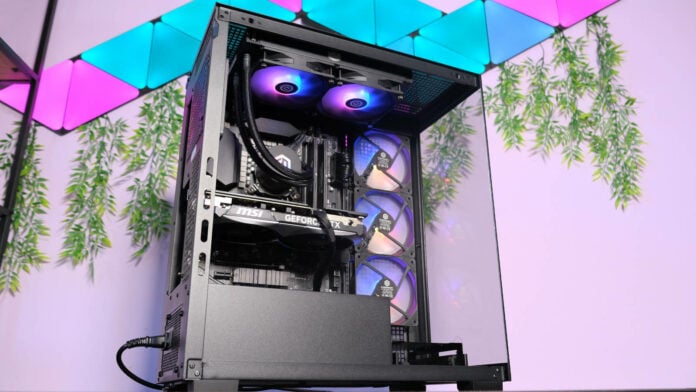Dressing your gaming PC from head to toe in one brand has its benefits. You know what quality to expect, all lights magically synchronise, and everything goes together like mac and cheese. CyberpowerPC MSI Infinity Elite is, for all intents and purposes, the most MSI you can cram into a single system, and it works like a charm.
Now, I’m not advocating brand loyalty. Monopolies aren’t good, and sometimes companies get stretched too thin across product portfolios. I can confidently say that MSI doesn’t fall into this trap for the most part. It excels at SSDs, makes fantastic graphics cards, has great motherboards, and even powers them all with first-party PSUs. The main goal is just making sure the spec is right, and that’s a delicate balance.
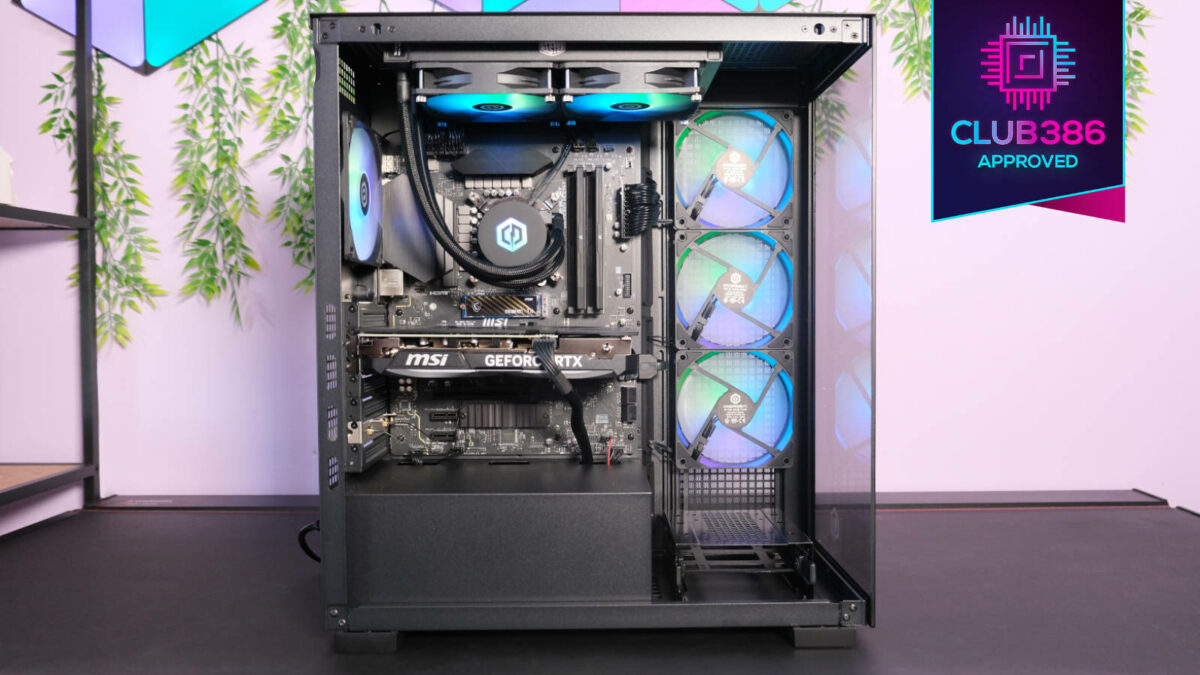
CyberpowerPC MSI Infinity Elite
£1849
Pros
- Leanest power draw
- Silent when idle
- Strong CPU performance
- Panoramic view
- Five-year warranty
Cons
- Laggy memory
- Loud when gaming
- Gen 3 SSD
Club386 may earn an affiliate commission when you purchase products through links on our site.
How we test and review products.
Specification
Although Lian Li OE235X Prism is a panoramic case, the darkened tinted glass makes it look little more than a black box. Once you press the power button, the whole system comes to life with RGB. All four 120mm GF120 ARGB PWM fans light up like a Christmas tree alongside the MasterLiquid Lite 240 ARGB AIO cooler.
Don’t sweat it if the swirling rainbows are a little too frenetic for your taste. All the blowers feed into the CyberpowerPC ARGB & PWM fan hub, letting you customise and synchronise to your heart’s content.
PC case ports are run-of-the-mill, featuring a top-loaded USB Type-C, two Type-As, and a single 3.5mm audio jack. If you want pure connectivity, then that rests on the shoulders of our MSI Pro Z790-S WiFi motherboard. As the name states, there’s built-in WiFi, but I’ll always gravitate towards the 2.5Gbps LAN port. Wired via Ethernet is simply superior when things get competitive. Alternatively, I’m a wireless peripheral kind of man, so Bluetooth 5.3 is a welcome addition in my quest to cut the cord.
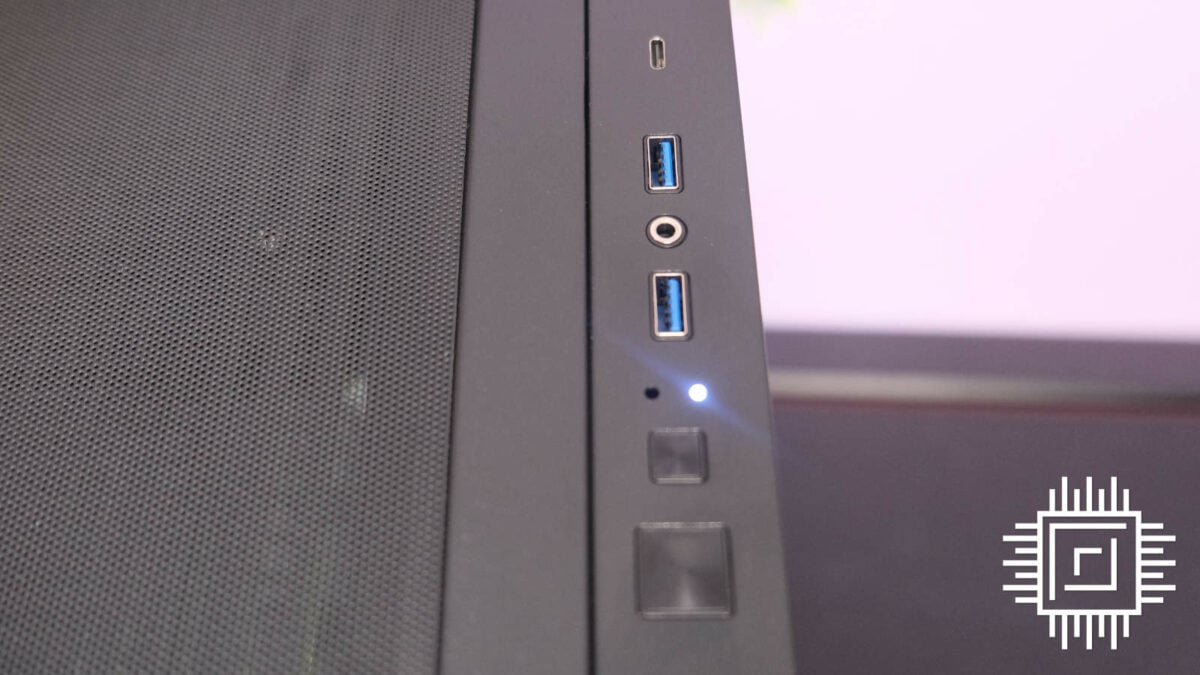
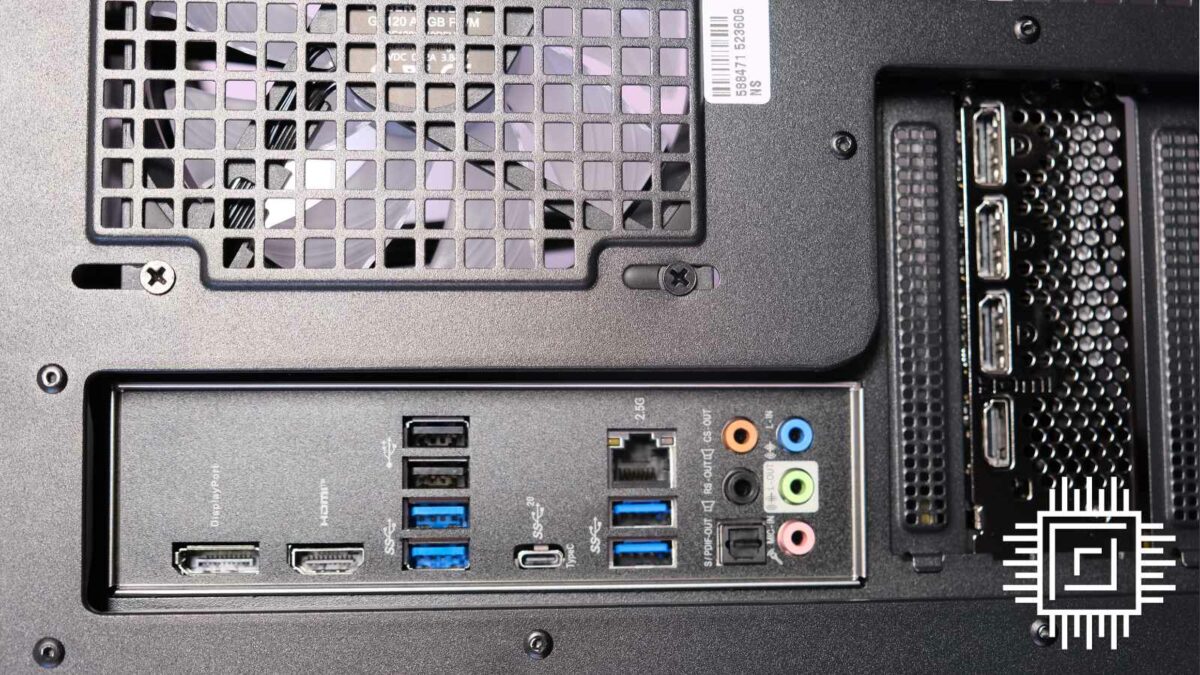
I/O-wise, there are six rear Type-A ports split between two USB 2.0 and four USB 3.2 Gen 1 alongside a single USB 3.2 Gen2x2 Type-C. Visuals come courtesy of an HDMI 1.4 and a DisplayPort 1.4, but these are sadly ornamental with our CPU. You see, the ‘K’ part of Intel Core i7-14700KF means you can overclock to its 5.6GHz boost frequency. The ‘F’ portion means there are no integrated graphics for you to leverage. It’s lucky it’s pretty with 20 cores, 28 threads, and a 33MB L3 cache.
None of this matters, though, as MSI GeForce RTX 4070 Super Ventus 2X is here to do the heavy lifting. Even our Founders Edition review beat RTX 3090 in almost every aspect, and this custom card takes it up a notch. Alongside its 12GB GDDR6X memory, it features a 2,505MHz boost clock that can push even further to 2,520MHz. You know what they say: good things come in small packages, and this one’s pretty slim with dual fans.
The most curious addition to this lineup is a 1TB MSI Spatium M371. It’s a Gen 3 NVMe that’s not available on this CyberpowerPC, as the custom builder only offers PCIe 4.0 Kingston Fury Renegade drives. I would’ve preferred MSI Spatium M570 Pro Frozr, since M371 is only capable of a 2,350MB/s rated sequential read and 1,900MB/s write speeds. Still, this makes for a good all-MSI experiment, and there’s nothing wrong with a stroll through the generations.
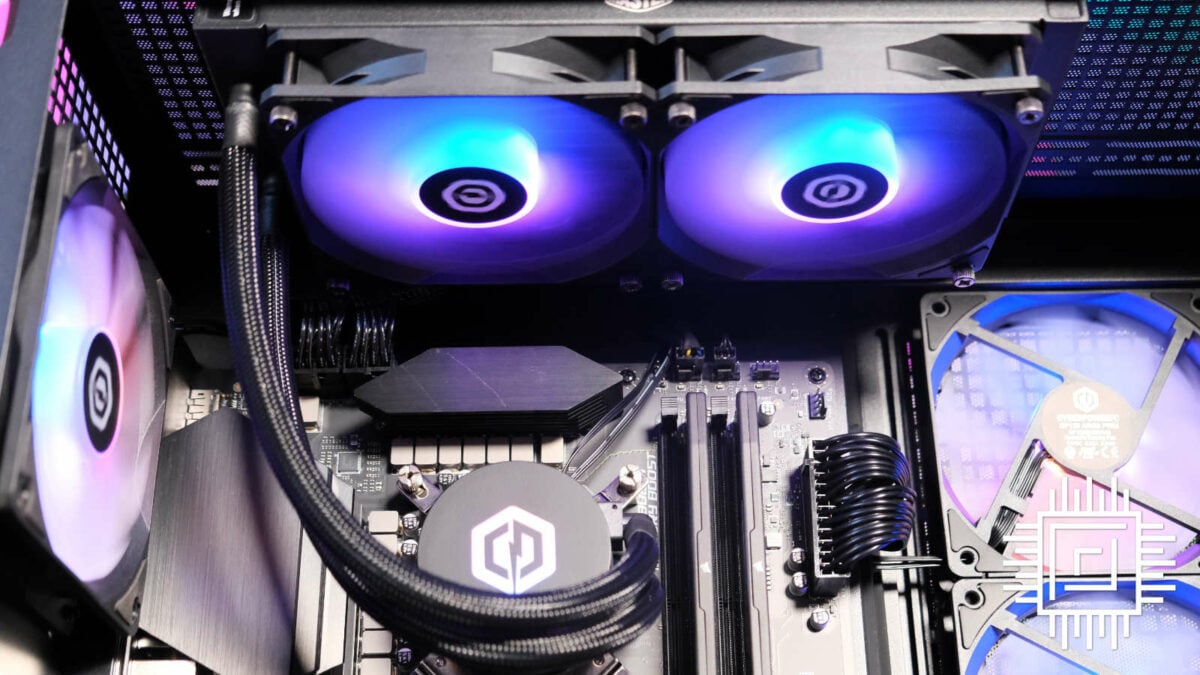
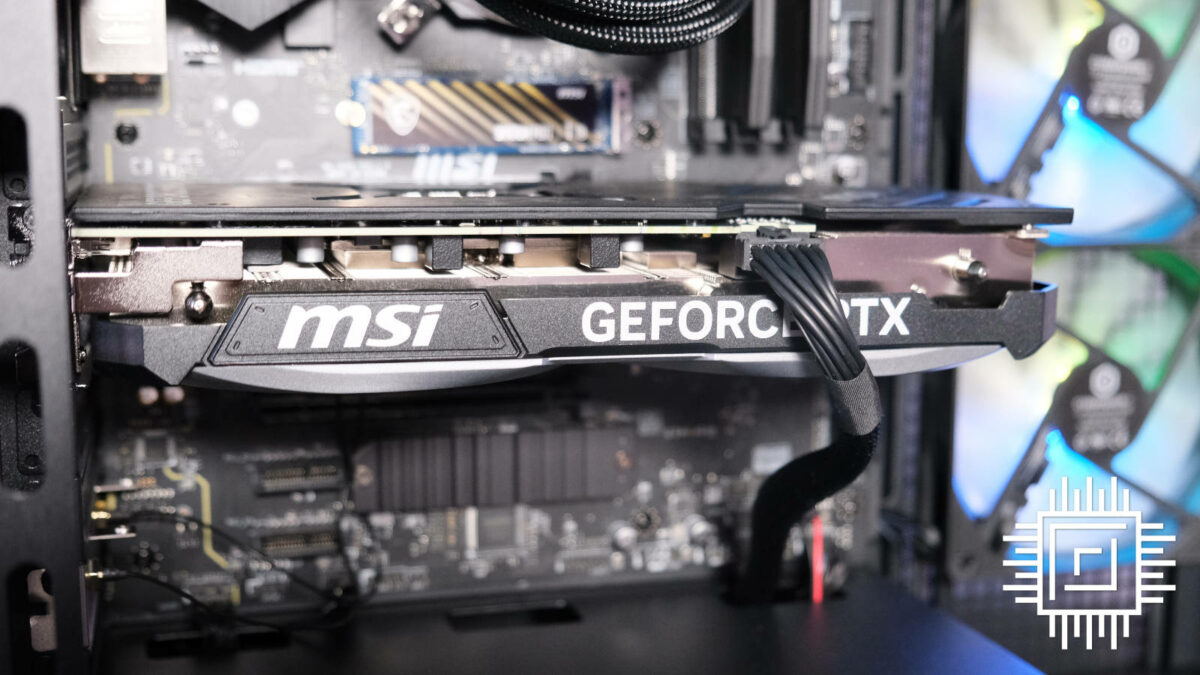
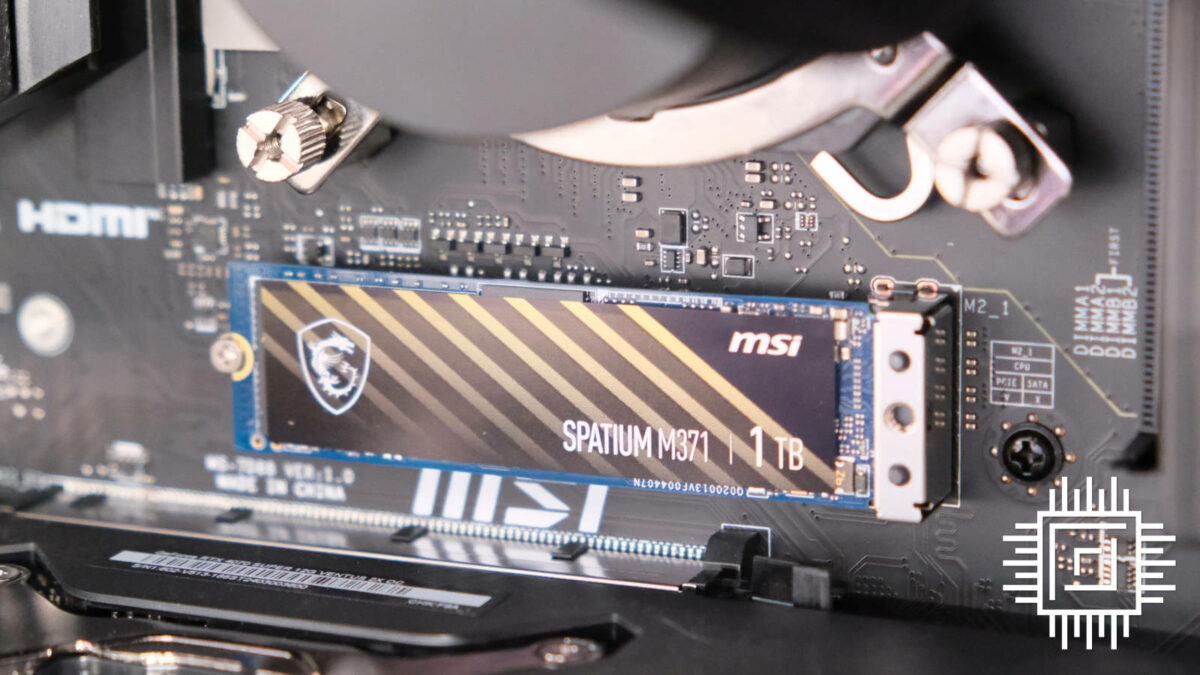
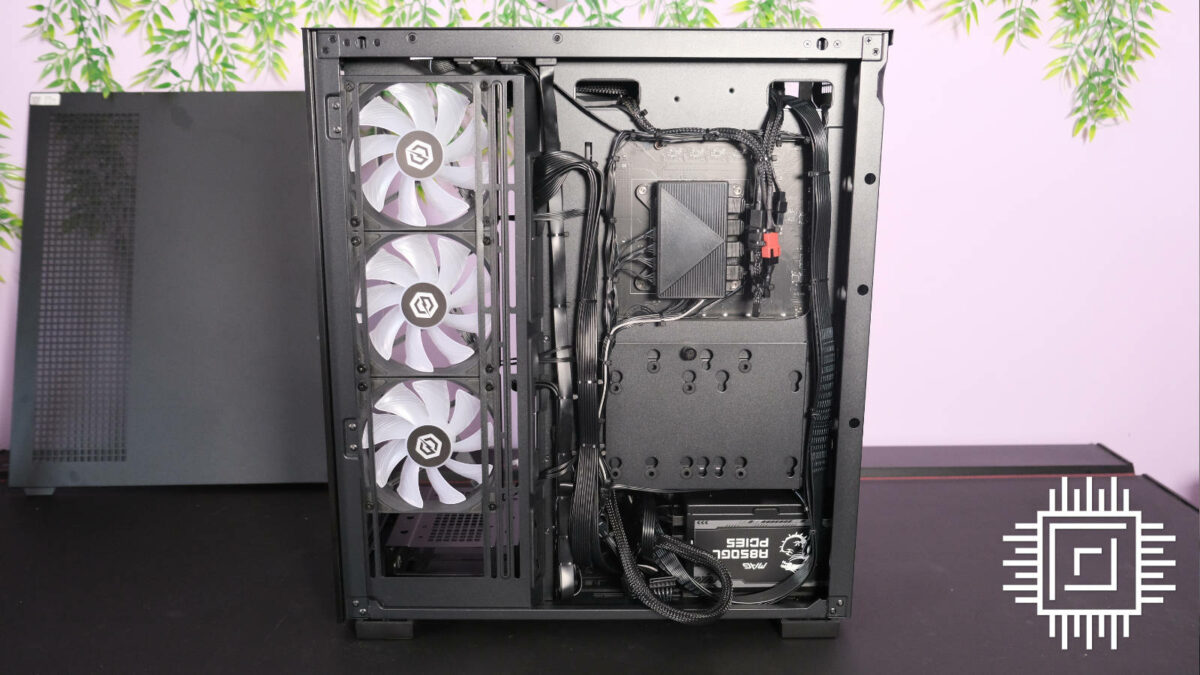
One thing I’d probably alter is the RAM. I’ve nothing against the 32GB of DDR5-5200 memory here, but Corsair Vengeance sticks are a little dull for an otherwise colourful system. For an extra £13, the RGB equivalent is right there, ready to brighten up your PC. If you have a more subtle taste than I do, then perhaps it’s already hit a bullseye.
That’s the beauty here. If you’re not happy with any particular aspect, CyberpowerPC gives you plenty of wiggle room. You can configure anything from the amount of RAM up to a whopping 96GB, add as many as four M.2 drives with this motherboard, and choose a range of GPUs to suit your performance preferences. Just be aware that opting for an RTX 4090 requires more juice than the MSI MAG A850GL PCIe 5 850W power supply can provide.
Since it’s a gaming PC, you could even add new parts later down the line. One great thing about Lian Li OE235X Prism is that the side panel pops off easily. Adding your own parts interferes with the Desktop Gold Warranty, however, which includes five years labour, two years parts, two years collect and return, plus lifetime tech support. You can upgrade this to Platinum for an extra £149, which adds a third year to the collect and return policy.
CyberpowerPC MSI Infinity Elite starts at £1,012.80 for basic parts. Our RTX 4070 Super config ramps this up to £1,849.20, and it’s worth every penny. Sourcing the parts myself would cost roughly £1,723. Factoring in the labour of putting it together and the expert support on hand to help you with problems, it’s in the right ballpark.
Performance
CPU
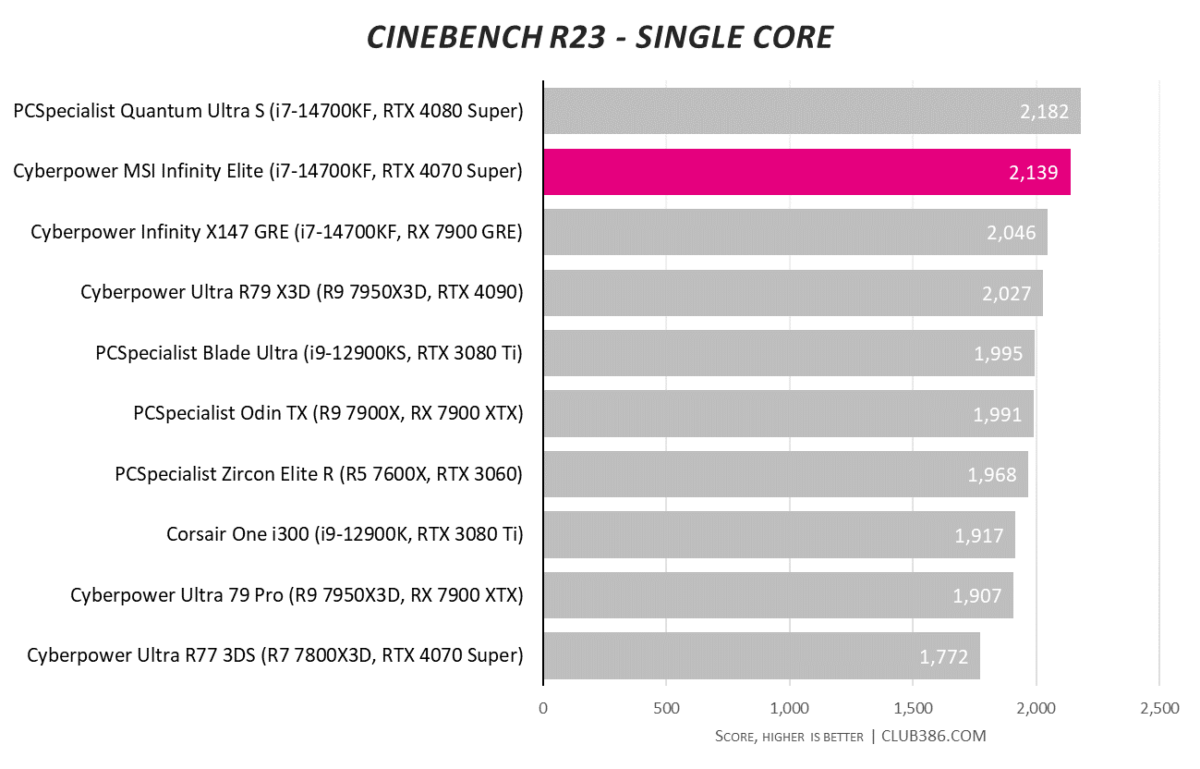
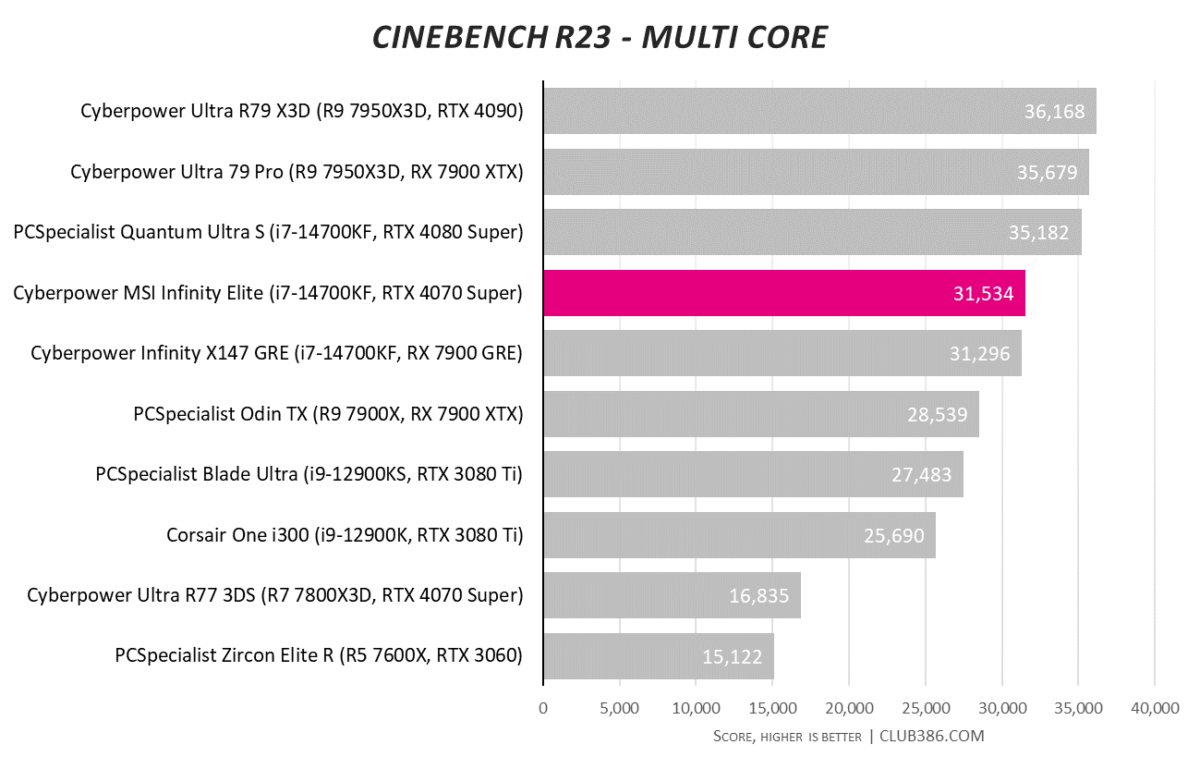
Getting the most out of your processor requires finely tuned BIOS power settings. Intel’s Core i7-14700KF handles well in single core tests, but CyberpowerPC UK’s system falls slightly shorter than other rigs with a similar configuration in multi-core benchmarks. Still, the beefy CPU will carry you through your games without issue.
For good measure, we even ran it through the latest Cinebench 2024, which has an entirely different scoring system. Cyberpower MSI Infinity Elite grabs 126 in the single-core benchmark, beating Apple M1 Max, and 1,785 in multi-core tests, beating Apple M1 Ultra. Not too shabby.
Memory
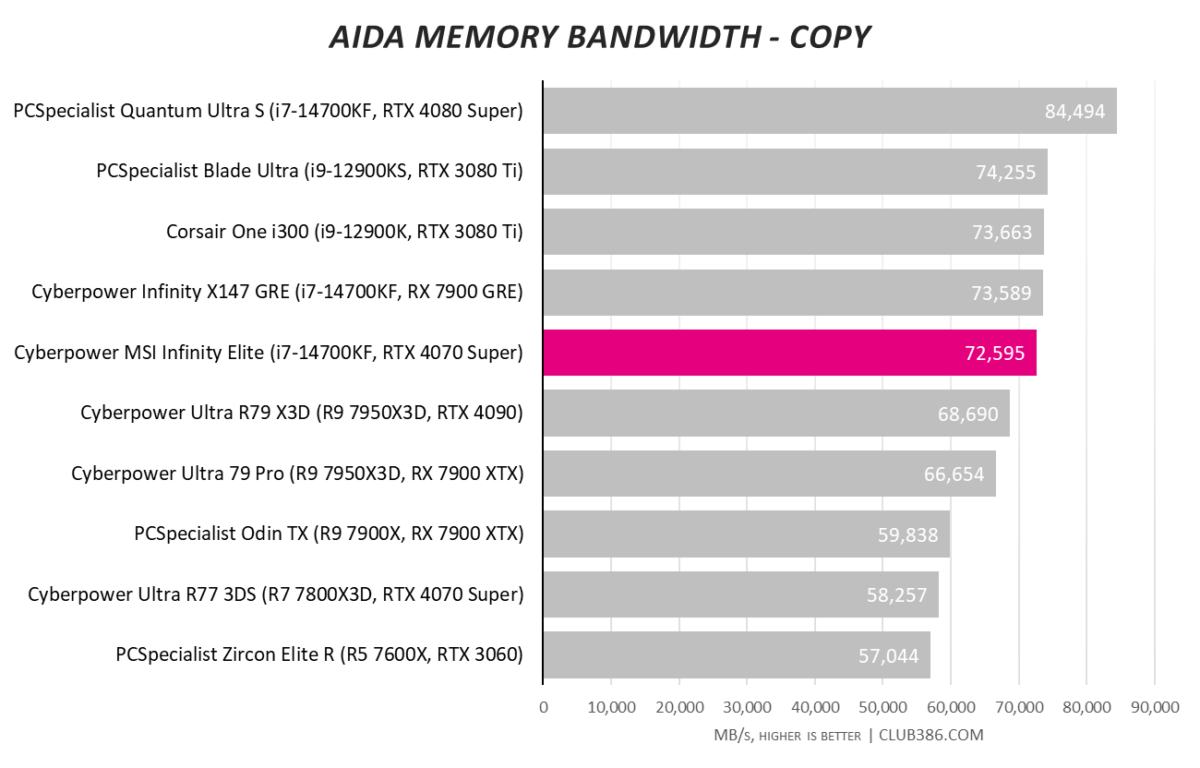
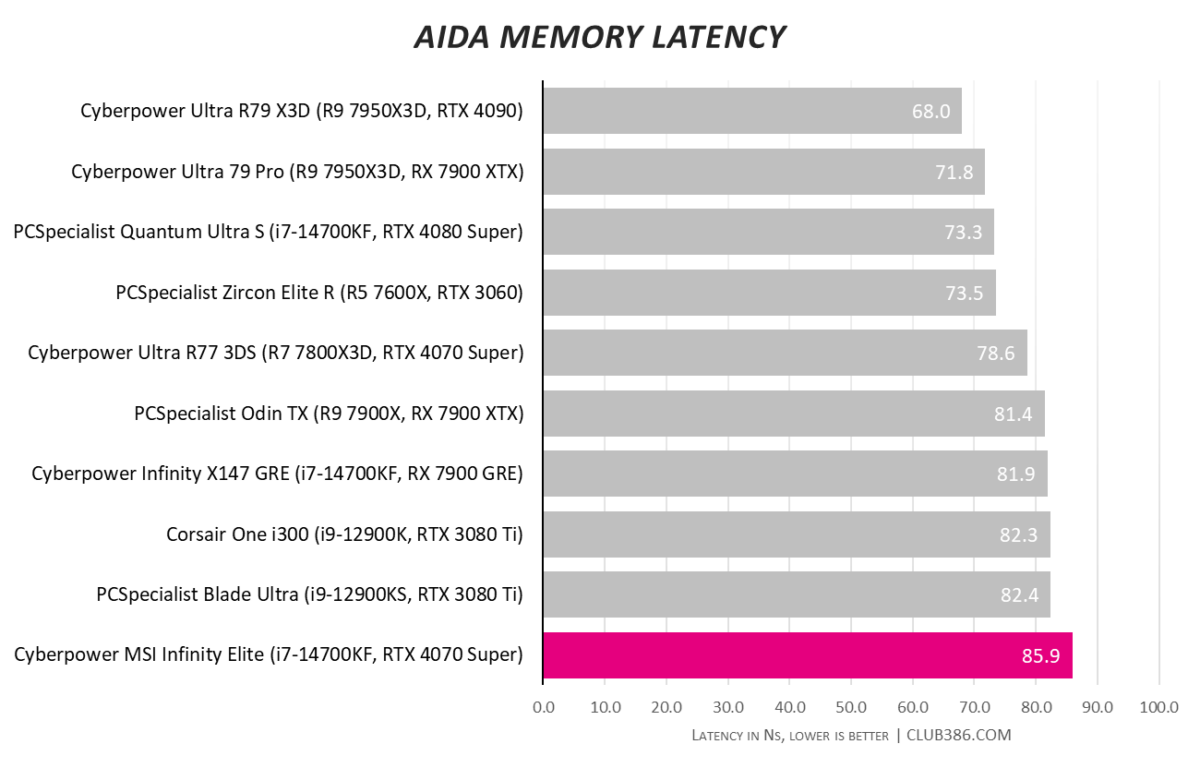
There’s nothing out of the ordinary for memory of this calibre. 32GB of dual-channel DDR5-5200 RAM holds up well in AIDA’s memory bandwidth copy test, sitting right where it should with a 72,595MB/s score.
Latency is another kettle of fish, as our trusty Corsair Vengeance sticks have some of the slowest response times yet. Of course, we’re talking nanoseconds, so it does feel a little like splitting hairs.
Storage
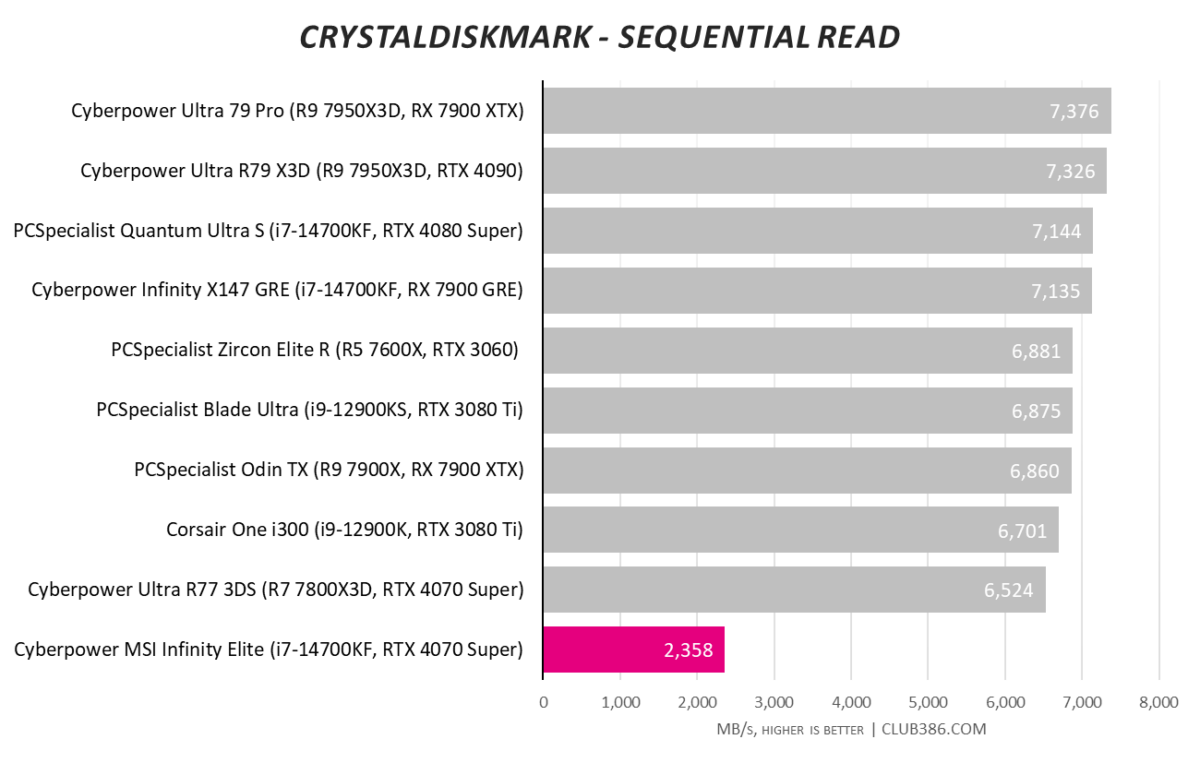
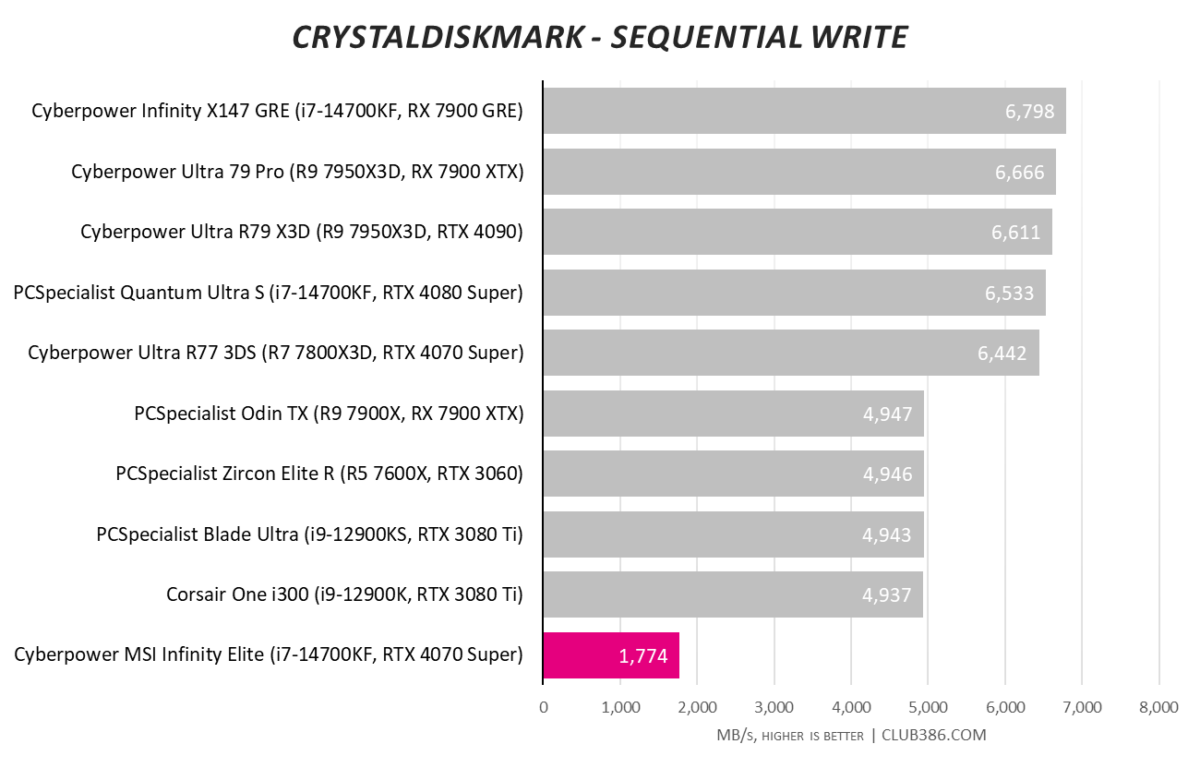
Don’t let our CrystalDiskMark tests fool you. MSI Spatium M371 sits at the bottom of the board simply because it’s a PCIe 3 NVMe rather than a more recent Gen 4 or 5. Sequential read speeds are still plenty for gaming, hitting the brand’s rated 2350MB/s with ease. Sequential write speeds of 1,744MB/s are in the same ballpark but a little lower than MSI’s estimations.
As a reminder, you’d get a Kingston Fury Renegade for the same price. This is rated at three times the speed, with 7,300MB/s read and 6,000MB/s write.
Apps
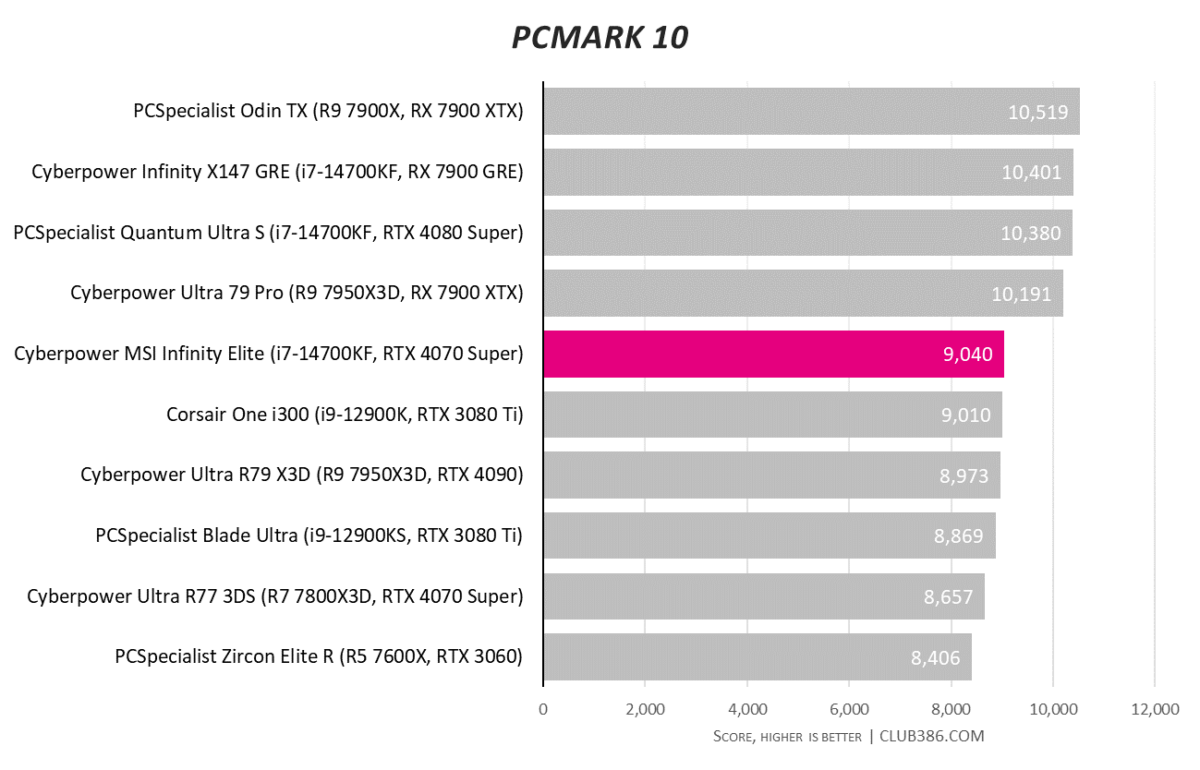
This system doesn’t make the biggest splash in applications, but it’s not weak by any stretch. The Core i7-14700KF / RTX 4070 Super combo scores 9,040 in PCMark 10 and 19,923 in 3DMark Time Spy. It lives by the saying ‘you get what you pay for’, as the only things out-muscling the system are straight upgrades.
Gaming
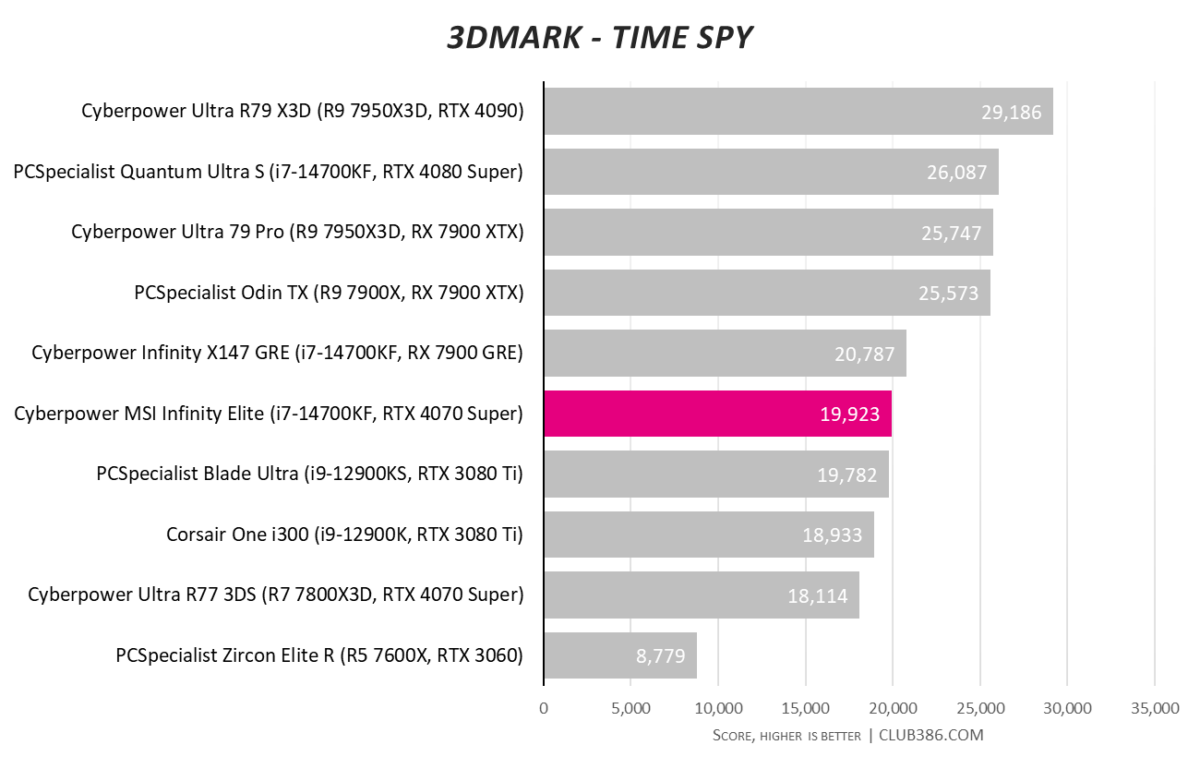
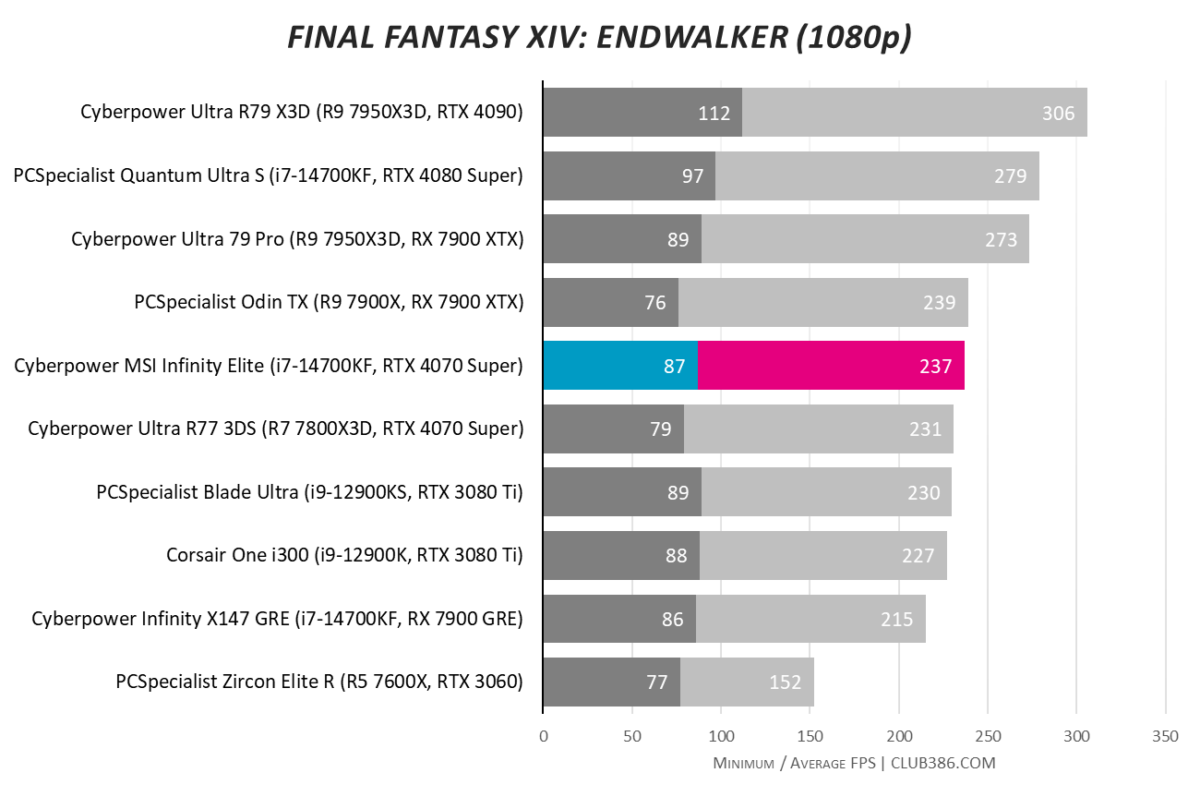
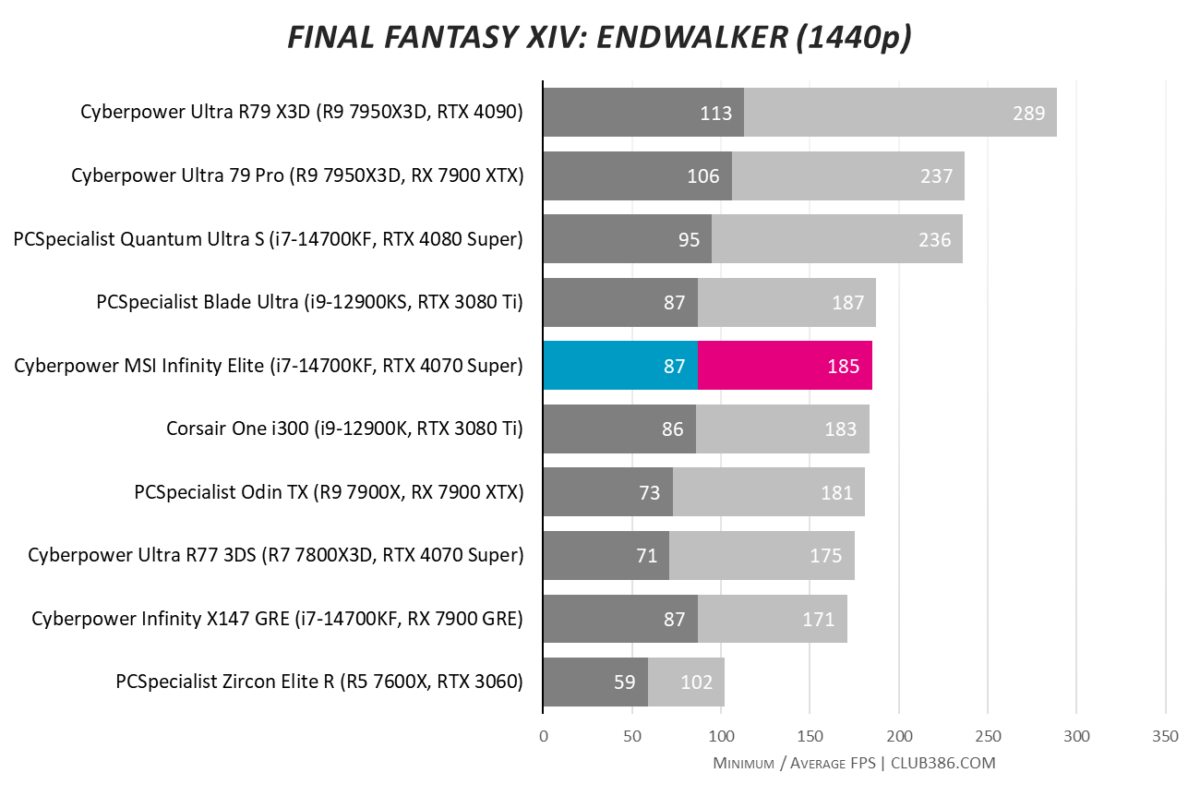
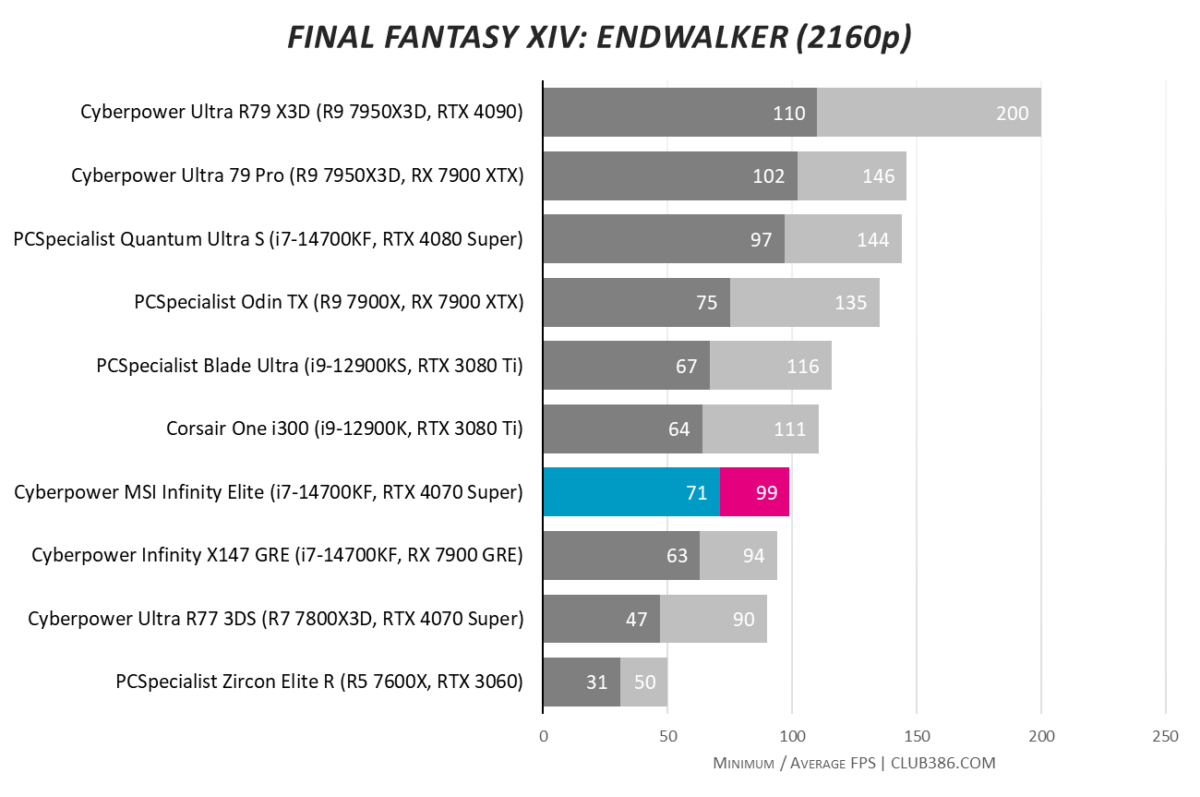
AMD’s Ryzen 7 7800X3D might be known for gaming, but its hefty L3 cache is no match for Intel’s finest. With the same RTX 4070 Super under the hood, you’ll get up to 10fps more in Final Fantasy XIV Endwalker than you can from Cyberpower Ultra R77 3DS.
| Game | FPS @ 1080p | FPS @ 1440p | FPS @ 2160p |
|---|---|---|---|
| Assassin’s Creed Valhalla (Ultra High Quality, FSR Off) | 163 | 144 | 104 |
| Cyberpunk 2077 (Ray Tracing: Ultra, FSR On) | 107 | 73 | 37 |
| Far Cry 6 (Ultra Quality, HD Textures and DXR On) | 146 | 121 | 69 |
| Tom Clancy’s Rainbow Six Extraction (Ultra Quality) | 292 | 200 | 92 |
| Final Fantasy XIV: Dawntrail | 198 | 143 | 69 |
RTX 4070 Super is more than capable of hitting 4K resolution in games. You’ll need to settle for 30-60fps if you plan on keeping max settings in some, but there’s no reason you can’t tinker to break into triple figures. Assassin’s Creed Valhalla manages it right off the bat, even without upscalers like DLSS.
As someone who prioritises frame rates, however, 1080p or 1440p might be more your stride. Guaranteeing between 120fps and 300fps means you can get an advantage against your opponent in competitive titles.
Vitals
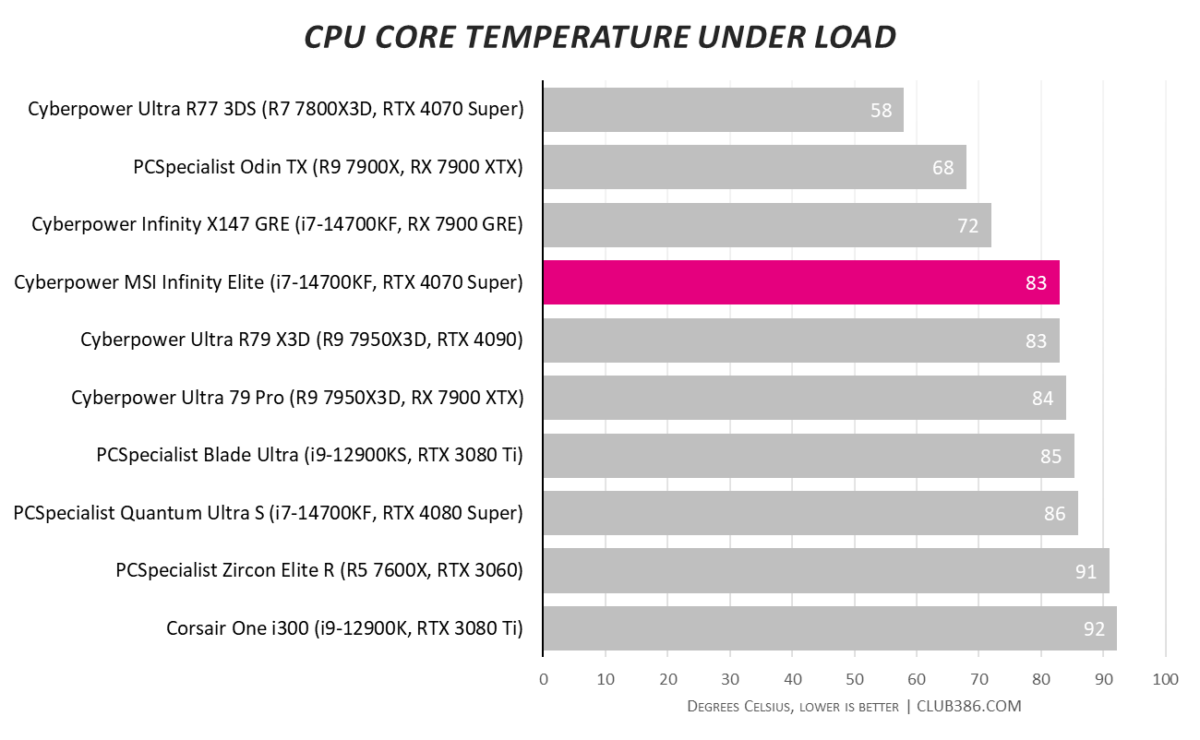
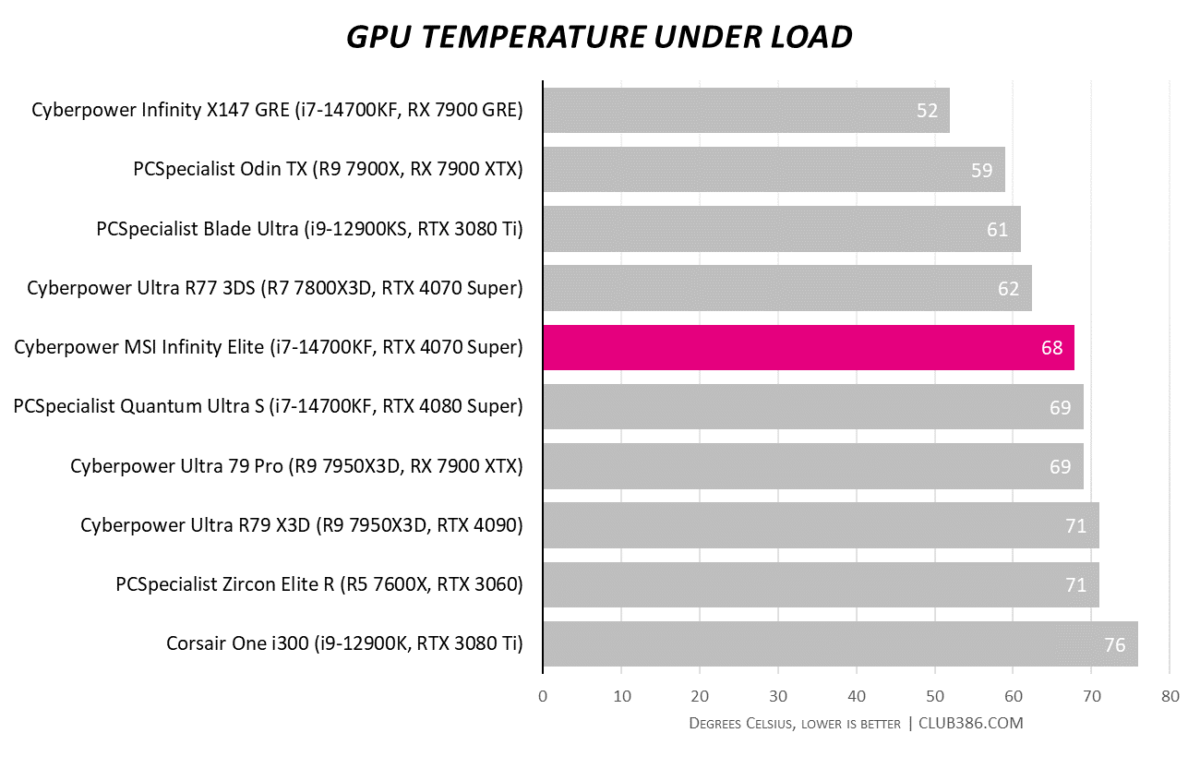
It’s not ideal to see an i7 running as hot as AMD flagships, but 83°C is still perfectly manageable. The MasterLiquid Lite 240 ARGB AIO keeps the CPU far away from thermal throttling in most cases, but the dreaded bottleneck did arise in Cinebench 2024.
On the other hand, MSI GeForce RTX 4070 Super hits 68°C in games. I’ve seen the same model cool better in other systems, but this is great for a dual-fan graphics card. Heat won’t slow this one down.
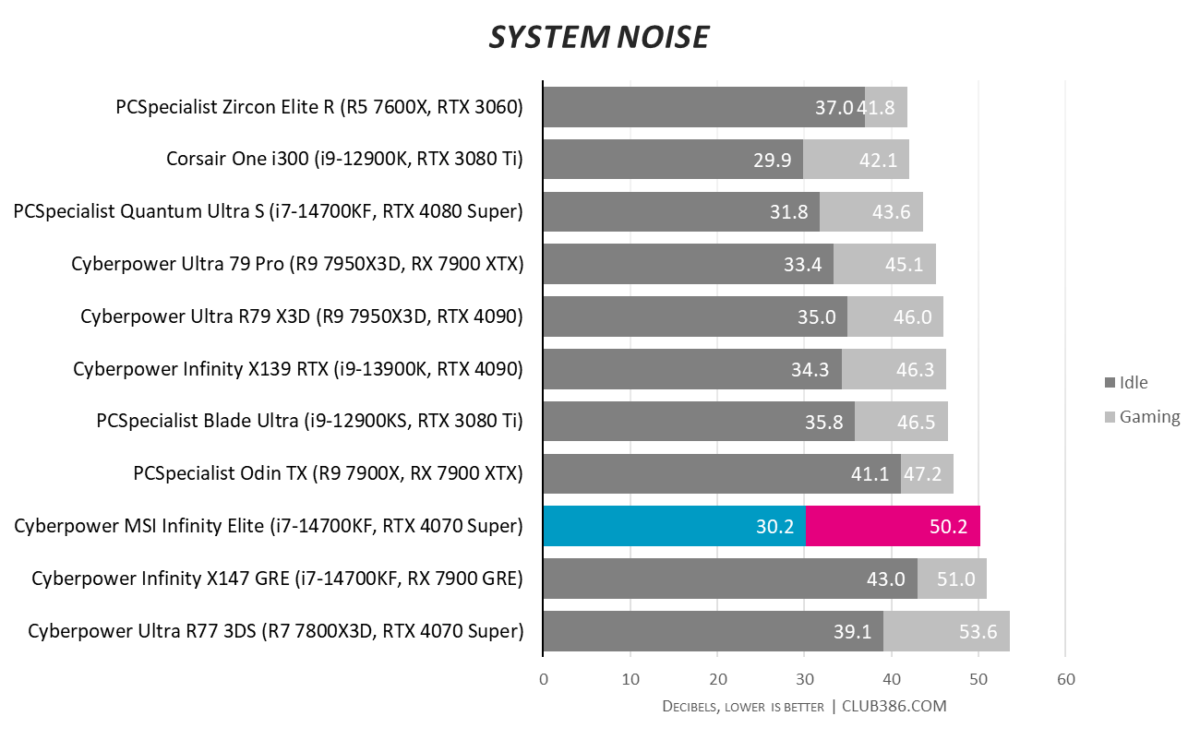
CyberpowerPC MSI Infinity Elite is like a clumsy ninja: completely stealthy when idle but makes a bit of a ruckus when stressed. It’s a fine trade for good temperatures when gaming, and you can always use Nvidia Broadcast to block the whirr from seeping through your gaming headset microphone.
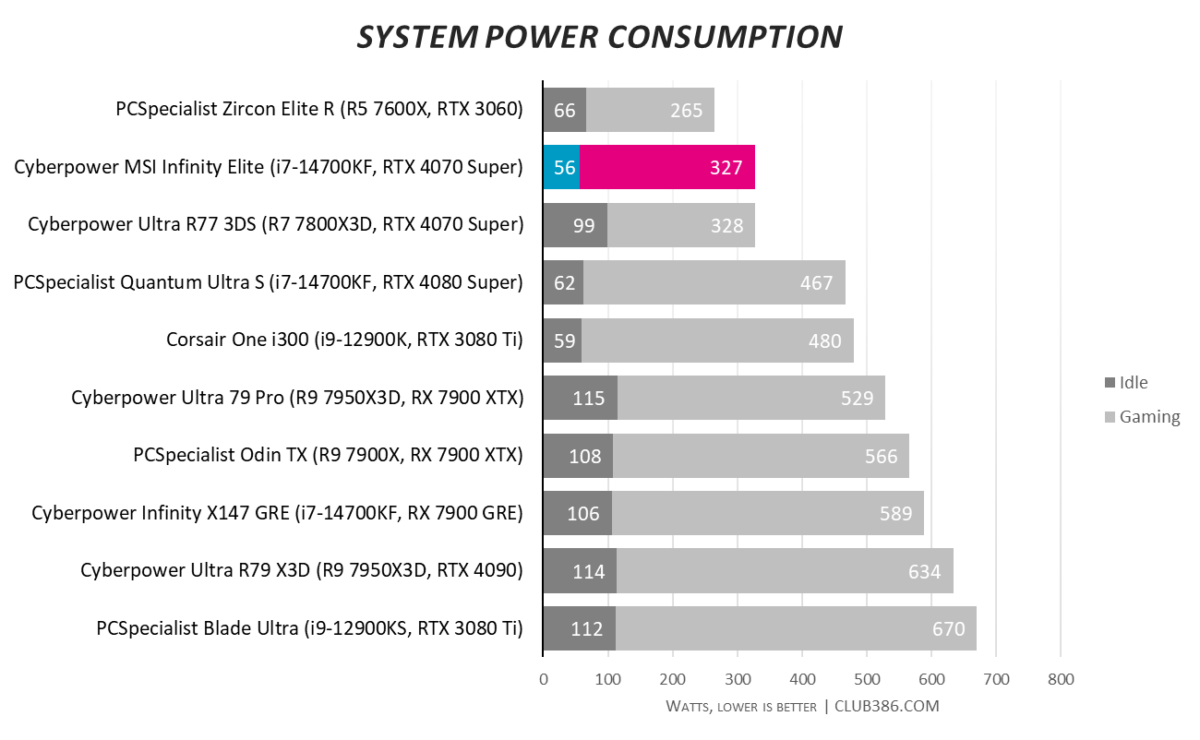
For all it offers, CyberpowerPC MSI Infinity Elite doesn’t ask for much in return. It’s the least-hungry PC I’ve tested at 56W idle and keeps that diet going in games, drawing just 327W. You won’t need to dive into the BIOS to undervolt, which is all the rage right now. In fact, you might even have some headroom to overclock if you feel bold.
Conclusion
CyberpowerPC MSI Infinity Elite proves that MSI provides a winning combo in just about every aspect. From the motherboard to the graphics card and power supply, none miss a beat except the Spatium M371 SSD. Although fine for a Gen 3 drive, this is a bit of a misfire that stands out like a sore thumb. This is exclusive to our review and not available for purchase, but we can only test what’s in front of us. The brand provides some brawny alternatives; they’re just absent from the custom builder in favour of Kingston.
The system’s silence as it idles is a welcome change of pace from Cyberpower Ultra R77 3DS, but fan curves are still my biggest complaint. Under load, they’re among the loudest I’ve tested. That said, the CPU performs like a dream underneath a 240mm AIO with brilliant temperatures, so it’s hard to complain.
Infinity Elite is geared towards 1080p and 1440p gamers, with just enough room to hit 4K in some titles. It should be near the top of your list when shopping for prebuilts, given its £1,849.20 price tag offers a lot of value. Plus, there’s plenty of room to tailor it to your liking.
Verdict: A gaming PC imbued with the power of a dragon that doesn’t ask for its hoard of gold in return.

